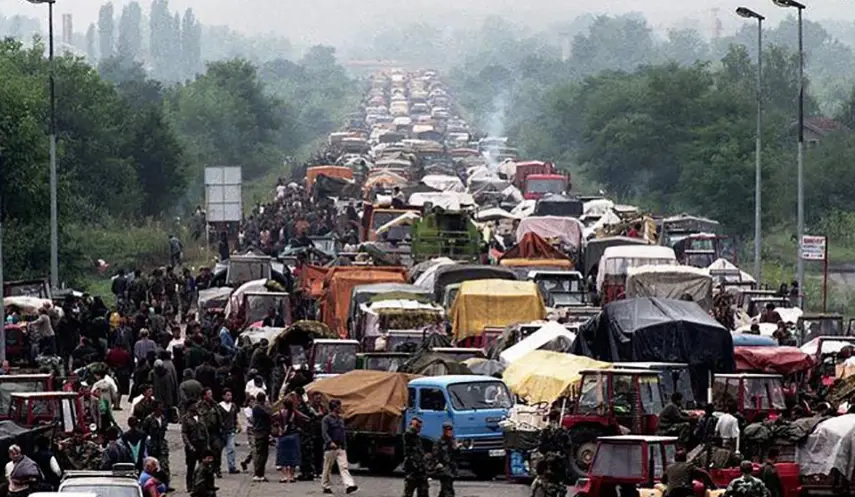PERSECUTION OF SERBS IN CRIMINAL OPERATION STORM BEGAN WITH THE ATTACK ON KNIN 30 YEARS AGO
Region - remembrance
08/04/2025
09:10

BIJELJINA, AUGUST 4 /SRNA/ – Today in 1995, the criminal military-police Operation Storm began in the areas of Kordun, Lika, north Dalmatia, and Banija, expelling more than 220,000 Serbs, who were moving in massive convoy toward Republika Srpska and Serbia to save their bare lives.
With the attack on Knin at dawn on August 4, 1995, systematic crimes against Serbian civilians and their property began.
The next day, August 5, Croatian forces entered the nearly abandoned town of Knin and raised the Croatian flag, while convoys of refugees were crossing Serb-controlled territories in BiH heading toward Serbia.
According to Veritas, more than 220,000 Serbs were expelled during the Storm. 1,903 names are registered as killed or missing during and after the operation - of whom 1,247 /66%/ were civilians, around three-quarters of whom were over 60 years old.
More than 220,000 people, carrying only their most basic belongings and traveling in whatever vehicles they had, began to evacuate, while on their way to Serbia and Republika Srpska, the refugee convoys were constantly attacked by Croatian artillery and air forces.
Only civilians remained in the Krajina region, who were subjected to terror even after the official end of the operation on August 7, which had been planned under the patronage of Franjo Tuđman.
The refugees were not allowed to enter Belgrade but were only permitted to pass along Arsenije Čarnojević Boulevard.
In the continuation of the offensive in BiH, through Operation Maestral, Croat and Muslim forces killed another 655 Serbs and forced approximately 125,000 people to leave their homes.
Serbs who decided to return to their homes now mostly live without electricity or proper infrastructure in the FBiH.
In July 2001, the Hague Tribunal unsealed an indictment against retired Croatian General Ante Gotovina, who was the commander of the operation. Gotovina was on the run until he was arrested in Spain on December 7, 2005, and extradited to the Tribunal.
A year earlier, two other generals, Ivan Čermak and Mladen Markač, had voluntarily surrendered to the Tribunal. They were indicted for persecution, deportation and forcible transfer, looting, wanton destruction of settlements, murder, inhumane acts, and cruel treatment during and after Operation Storm.
The indictment against Gotovina was merged with the indictment against the other two generals by decision of the Tribunal’s Trial Chamber.
In April 2011, Gotovina was sentenced to 24 years, and Mladen Markač to 18 years in prison, while General Ivan Čermak was acquitted of all charges.
In the verdict to Ante Gotovina, the Hague Tribunal found that Operation Storm was a joint criminal enterprise, led by Tuđman, designed to expel the Serb population from the Knin Krajina – as the indictment had claimed.
However, in November 2012, the Appeals Chamber of the Hague Tribunal acquitted Gotovina and Markač of responsibility for the persecution of Serbs from Knin Krajina in 1995, overturning the first-instance verdict, and both men were released.
The acquittal triggered euphoria in Croatia, and cities across the country raced to award Gotovina the title of honorary citizen.
In a 2015 ruling, the International Court of Justice classified Operation Storm as ethnic cleansing, but not as genocide, although global experts in the field argue that the operation bore all the elements of genocide.
Croatia is celebrating August 5 as "Victory and Homeland Thanksgiving Day".








